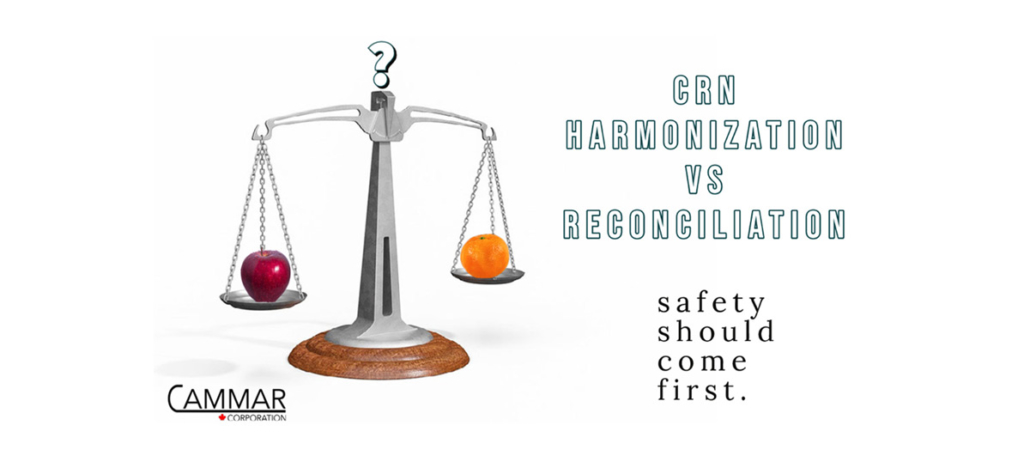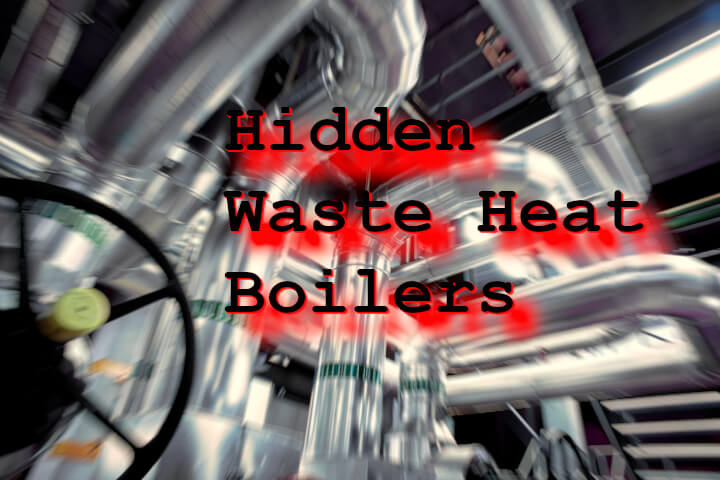CRN harmonization vs CRN reconciliation. Are they different?
Reconciliation has been touted as an improvement to the CRN registration process. But is it simply a new and weaker buzzword for harmonization? Does reconciliation increase the speed of CRN registration and reduce registration and design costs? Are jurisdictions somehow harmonized further than they were before? Is public safety further enhanced? Read on.
CRN Harmonization and Issues to Resolve
CRN harmonization has been around for a very long time. Starting with the 1939 edition of CSA B51, and continuing up to the most recent edition of CSA B51 in 2019, a harmonized pressure equipment CRN numbering system has been recognized across Canada, to facilitate jurisdictional cooperation and recognition, while maintaining safety in the best interest of Canadians. Over the intervening years, various revisions to the Canadian pressure and vessel code have added Canadian jurisdictions, specific fitting categories, and more clarification of the CSA B51 rules as Canada progressed. CRN’s (Canadian Registration Numbers) have thereby been around for more than 80 (eighty) years. Revisions in CSA B51 to help address these statutory and regulatory differences might well be addressed in the next edition of CSA B51, but are not yet complete. Businesses in Canada that make and use pressure equipment like boilers, pressure vessels, pressure fittings, thermal liquid heating systems, heat exchangers, pressure piping, hot water tanks, etc., need to know how to navigate CRN requirements, understand the system, and understand the CRN regulators that administer the system. CAMMAR helps.
Canada’s constitution assigns pressure equipment safety to provincial and territorial jurisdictions, each with its own unique legislation. Even pressure equipment safety at federal facilities is governed by provincial and territorial jurisdictions, at the request of and through agreements with the federal government. This is unlikely to change without an amendment to the Canadian constitution, and such a change would be unprecedented.
Canadian jurisdictions remain autonomous from one another and, despite the appearance of various free trade agreements and even with the Reconciliation Agreement itself, regulators each have unique safety legislation and jurisdictional requirements to administer. Jurisdictions have not adopted each other’s regulations. Though the Canadian Registration Numbering (CRN) system is recognized across Canada without exception, the statutes and regulations of each jurisdiction are somewhat different, particularly in terms of definitions, and exemptions. Some exemptions from CRN registration are more lenient than others. Regulators reportedly work with each other behind the scenes to help ensure, as much as possible, that designs to be used in different provinces are compliant in all.
Different jurisdictions also have different per capita concentrations and varieties of pressure equipment and, therefore, the regulators in different jurisdictions naturally have different levels of experience when it comes to pressure equipment evaluation. Some literally review thousands more CRN applications and types of equipment than others. Jurisdictions with the most pressure equipment intensive concentrations often have the largest regulatory departments, with the largest number of regulatory officers, and arguably have the most regulatory experience. ABSA in Alberta, the TSSA in Ontario, and Technical Safety BC in British Columbia see the lion share of pressure equipment use in Canada.
Per capita, Alberta is one of the most if not the most pressure equipment intensive regions in Canada and North America. ABSA, the pressure equipment regulator in Alberta, thereby has one of the most, if not the most experienced. staff of regulatory officials in any Canadian jurisdiction.
CRN Reconciliation and Persistent Questions
CRN reconciliation is a recent effort where some jurisdictions have agreed publicly, at least ostensibly, to accept the reviews of other regulators in lieu of any subsequent regulatory review by signing a Reconciliation Agreement. Alberta, New Brunswick, and Newfoundland have not signed the arrangement.
Reconciliation is Different Than Harmonization.
Reconciliation is fundamentally different than harmonization since, on the surface at least, jurisdictions no longer have the ability to conduct their own independent reviews of pressure equipment designs. For jurisdictions that have signed the agreement, it means that for any pressure equipment registered in Province A (for example, any jurisdiction, including smaller and less pressure equipment intensive provincial jurisdiction in Canada), registration would automatically follow in Province B at the applicant’s request and further payment, regardless of whatever additional requirements or environmental challenges Province B would otherwise address. Obviously, different regions in Canada have different climates, wind loadings, and seismic activity. Beneath the surface of the Reconciliation Agreement, problems can obviously potentially arise, and questions abound.
Potential Safety Issues
To facilitate use across Canada per the Reconciliation Agreement, does the safety officer conducting the initial review in Province A automatically assess whether the design is suitable for absolutely every location in Province B and everywhere else in Canada? Would a vessel registered in Province A necessarily be suitable for the most seismically active region in Province B? Perhaps not and if not, then how can Province B in good conscience allow use of the equipment registered in Province A per the Reconciliation Agreement without more, and automatically accept all vessels registered in Province A, or C, or D, or…? Who is overseeing and auditing the registration process to ensure that all equipment is registered consistently at a high level of compliance, in the interest of public’s safety? If there are exceptions and options to when the Reconciliation Agreement is to be used, none seem to be stated publicly by those jurisdictions that have agreed to it.
Economic and Competitive Issues
Must all vessels registered via the Reconciliation Agreement thereby be overbuilt, in case they are potentially used at the most seismically active Canadian spot, or windiest Canadian spot, or coldest Canadian spot, or etc.? By imposing uniform requirements to allow use everywhere, how much extra cost associated with overbuilt designs would be involved if the Reconciliation Agreement is applied properly? Is this extra cost in industry’s best interest? Conversely, how many vessels will be put into service that do not meet jurisdictional requirements, if those requirements are overlooked in the interest of market service? In the event of a registration error, how much re-work will be needed to correct it after distribution and installation, at what cost?
Need for High Standards and Regulatory Consistency
Do the regulatory officials in all provinces have the same level of expertise, and do they all apply the same level of scrutiny to all their reviews? Any perception that the Reconciliation Agreement is a regulatory race to the bottom, that facilitates the delivery of all applications to the most obliging regulatory port of entry, need to be avoided. What assurance and evidence is there that all regulatory officers evaluating pressure equipment across Canada have equivalent, comparable experience and consistent high standards when evaluating pressure equipment for safety?
Consistent Safety and Regulatory Training
How can a regulator in a less intensive pressure equipment jurisdiction, which would ordinarily see only a small fraction of the applications seen by a more pressure equipment intensive province, gain the same experience to properly evaluate and review complex or diverse designs, except with significant time and work share arrangements? How can safety officers be adequately trained in such a short time to properly evaluate whether designs comply with all Canadian environmental conditions and regulatory requirements, so that the Reconciliation Agreement does not potentially adversely affect public safety?
Legal Questions
The scope, protections, and limitations of regulatory officials are described by the legislation that their authority is derived from. Different jurisdictions have different legislation, with different exemptions from CRN registration. So, how can a regulatory official in a jurisdiction where CRN registration in a particular circumstance is exempt from and not supported by their legislation, still register the pressure equipment with a CRN in good faith and in accordance with the authority the legislation gives them?
Market Forces Affecting Safety
Will some jurisdictions, that traditionally received fewer applications, suddenly receive more if industry believes that CRN acquisition is easier via some routes than others? What if an applicant wants to initially limit where their equipment is registered, and then expand the registration at some later date after the initial review. Based on the Reconciliation Agreement, subsequent reviews would not be required, regardless of the equipment’s final destination and age. How would this practice be consistent with proper consideration of all requirements at the equipment’s final destination, in the interest of public safety?
The Bottom Line
The whole point of the regulatory system associated with pressure equipment is to help ensure public safety and confidence. Many unanswered and intriguing questions about the Reconciliation Agreement remain.
Hopefully, pressure equipment regulators will not lose sight of the fact that their customer is the public and, for them, the public’s interest in safety must remain paramount.




